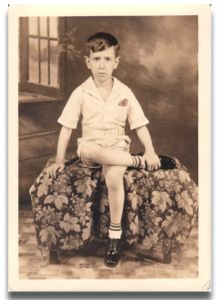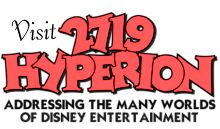 World War II veterans returning home were greeted by numerous post-war archetypes, so much so that many of these characterizations became part of the popular culture of the era. Numerous movies employed such characterizations, most notably the 1946 Oscar-winning The Best Years of Our Lives. This magazine advertisement from 1945, produced by War Advertising Council and sponsored by Bristol-Myers, satirically described the various types of personalities returning soldiers were likely to encounter.
World War II veterans returning home were greeted by numerous post-war archetypes, so much so that many of these characterizations became part of the popular culture of the era. Numerous movies employed such characterizations, most notably the 1946 Oscar-winning The Best Years of Our Lives. This magazine advertisement from 1945, produced by War Advertising Council and sponsored by Bristol-Myers, satirically described the various types of personalities returning soldiers were likely to encounter.THE GREETER. He's a one-man brass and when it comes to welcoming a veteran. "Nothing's too good for Our Boys!" he always says. And that's exactly what he gives them. Nothing, except a big hello and empty words. Help? That's the Government's job. "Don't vets have bonuses?" he asks, "Pensions? Job agencies?"
THE CLUTCH. One like her in every town. Always leaping to help some disabled veteran over a pebble. Practically blubbers at him while she's doing it. Succeeds in making the veteran feel as if he's ruined for any normal life. Or career.
THE BLOODHOUND. "It's OK, Sailor, you won't shock me!" This shock-proof stalwart is after the details. How does it feel to be bombed? Ever knife a Jap? The War's just one big adventure to him. But it hasn't been for the sailor. He wants to forget it— fast. Not talk about it.
THE PATRIOT. He's practically winning the war single-handed. Always talking about all the things he goes without, all the War Bonds he buys. Talks as if he were doing the Government a favor, when he's really making the best investment in the world. Veterans (who've been buying plenty of Bonds themselves) love this kind of talk. Makes them wonder whether we had the right people in the front lines.
THE ROCK. He's nerveless. The Iron Man. War hasn't affected him. Can't understand why discharged veterans are allowed 90 days to relax before going back to their old jobs. Can't understand why they should need time to get over the War. He doesn't. Combat Officers would love to have this type in their care for a while.
BLUE RIBBON CITIZEN. Like all good people, she asks no questions, weeps no tears, doesn't stare at disabilities. To her, a returned veteran is an abler, more aggressive and resourceful citizen than the boy who went away. She's proud of him, proud to know him. Anxious to be of real help to him. She's the kind of person we should all be.








2 comments:
So . . . is this to temper the behavior of the public by showing "ugly" examples of potential attitudes? Regardless, this is super-enjoyable to read. Thanks for the transcription.
"Like all good people, she asks no questions!"
For some reason, this one made me laugh and laugh.
This is terrific stuff!
Post a Comment